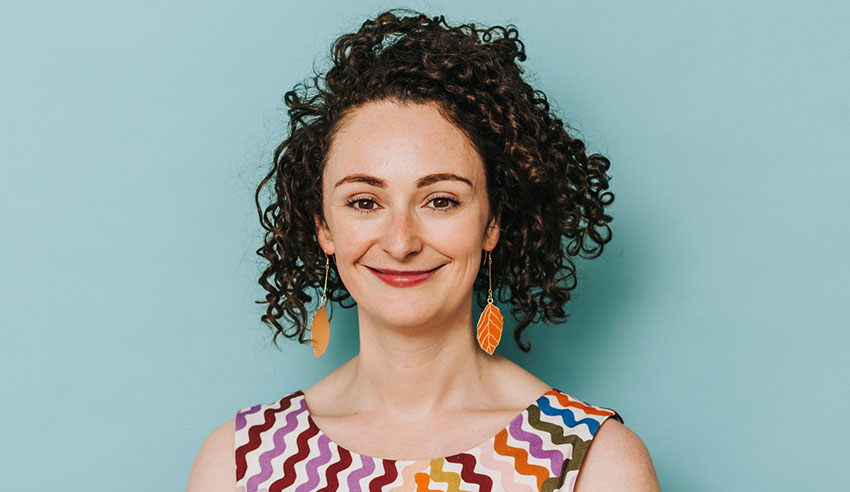While many lawyers and clients flourished online in the past year, there remains a need for physical workspaces, or at least hybrid models – particularly for juniors and non-tech-savvy clients.

Some legal professionals, and numerous clients, were able to successfully adapt to operating solely online in the age of coronavirus. However, Nest Legal founder Laura Vickers mused, others could not properly make that pivot.
“Some of this can be replicated online, such as dialling into calls or leadership meetings as silent guests, but it will be slower and it needs to be consciously managed (on top of the supervisor’s day job).”
If a colleague or employee is emotionally struggling – “and a lot of people were in 2020” – it became a lot harder to support them from a distance, Ms Vickers continued.
“You can tell from someone’s eyes the moment they walk through the door that something is out of kilter, and take steps to make sure they feel supported at work. We introduced weekly one-on-one wellbeing check-ins with each team member throughout 2020 to see what support they needed, but it still wasn’t as effective at picking up what wasn’t being said as eyeballing them,” she detailed.
“Lawyers who are fully formed, in no need of further mentoring or emotional support or help to stay focused, thrive working from home. For the rest of us, there’s a lot to be gained from having some time with our colleagues.”
From the administrative and professional conduct standpoints, Ms Vickers continued, there is also a need to retain paper as part of one’s physical workspace.
“Nest Legal is a paperless tech-forward firm, but we practice in areas that still involve a degree of paper (paper titles; not all estate planning documents are permitted to be witnessed electronically under the COVID legislation; not all clients have adequate ID documents to be able to be identified fully by remote means),” she outlined.
“That paper needed to be processed and stored. The law is not a fully paperless beast just yet, and there are further regulatory challenges ahead as we attempt to make it one.”
Ms Vickers advocated a combination of use of tech and the existence of a physical office, as opposed to simply one or the other.
“In Victoria, legal practice isn’t going back to ‘normal’ for a while, if ever again. We are going to be practicing in a hybrid world with density capacities for offices, more of the population and the profession familiar with new technologies (but not all), inconsistent internet coverage across the country, and surged demand for our services (particularly from the less technically literate portion of the population),” she said.
“Something we are trialling at the moment as part of our low-tech pro-access model is a paralegal in our Northcote or Castlemaine office welcoming a family law client in, making her a cup of tea, helping her navigate our Settify intake form and then setting her up with a videoconference with a family lawyer who might be based in Elsternwick that day. The paralegal takes notes and is there for emotional support throughout the conference. These clients would have fallen through the cracks in 2020, and our paralegal might have been denied that learning experience.”
If COVID-19 has taught lawyers anything, Ms Vickers reflected, it is that “no amount of crystal-ball gazing can prepare us for what’s around the corner”.
“Our advice to clients is to make sure they have their life admin and essential documents in place. How should we be helping clients do this? A purely online practice works well when your clients are technologically savvy, have reliable internet connections and suitable devices, no capacity or language issues, and are emotionally strong enough to sit alone in a room for one of the more difficult conversations of their lives,” she suggested.
“In a perfect world, that would be everyone. But the world isn’t perfect, and usually lawyers get involved when things aren’t going perfectly.”
For genuine access to justice, she surmised, the legal profession needs to be able to deal with clients from different walks of life.
“Sometimes, that might mean a videoconference linking in a stay-at-home dad with a FIFO mum to talk through their estate plan. Other times it might sitting down with a box of tissues in the flesh,” she said.
Ultimately, technology must be an enabler, but it also shouldn’t be at the expense of necessary physical interaction and administration, which are essential for professional development and access to justice alike, Ms Vickers concluded.
“Let’s get creative as a profession and use these new tools, our empathy for clients’ situations and our imagination to find new ways to straddle this divide,” she said.
“Let’s see technology as an enabler, and not the pronouncer of finding a better way.”

Jerome Doraisamy is the managing editor of professional services (including Lawyers Weekly, HR Leader, Accountants Daily, and Accounting Times). He is also the author of The Wellness Doctrines book series, an admitted solicitor in New South Wales, and a board director of the Minds Count Foundation.
You can email Jerome at: